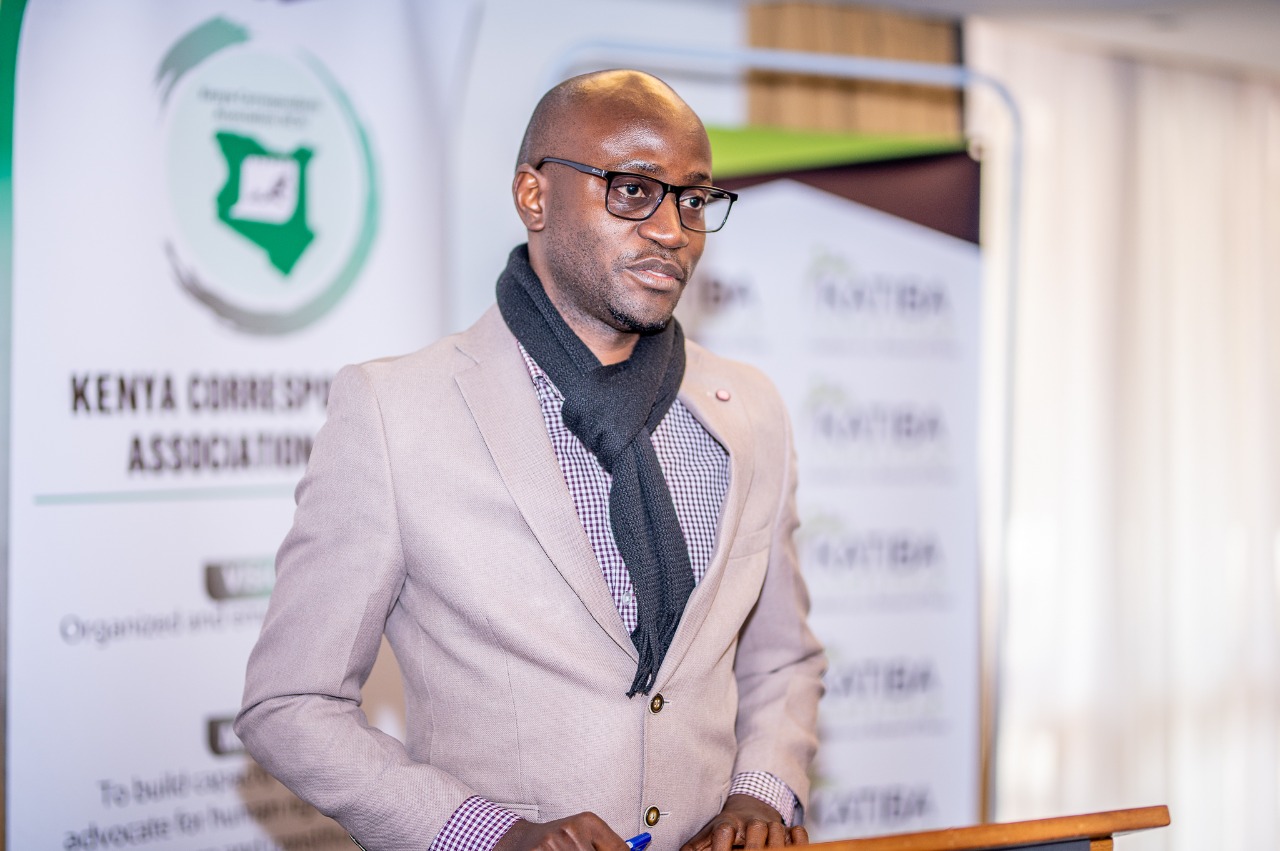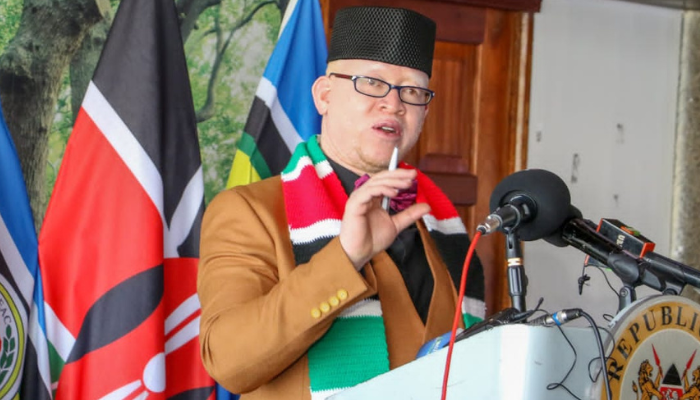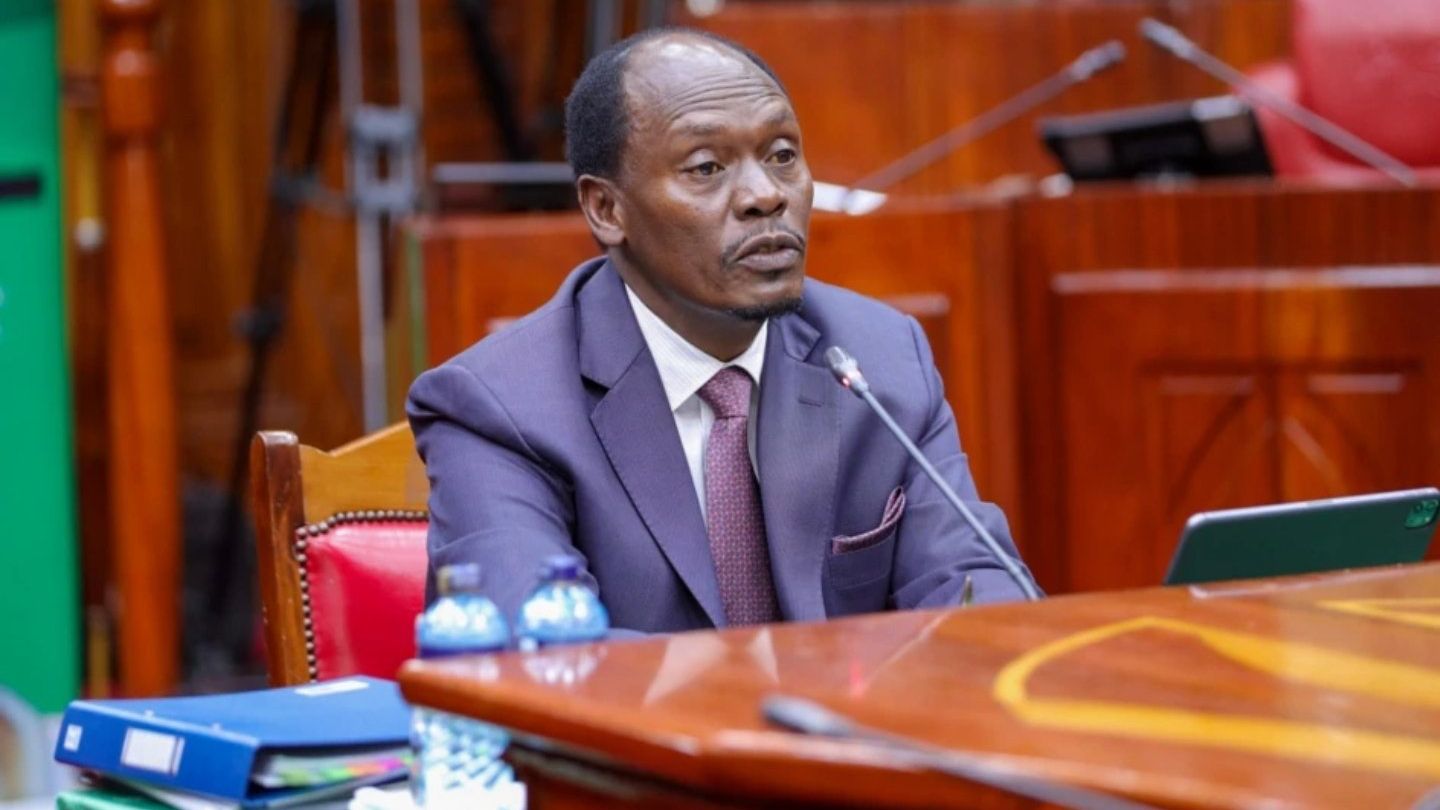In our segment of #KenyaWomenSeries, we feature, Grace Njiru. As a young girl, Grace always wanted to be a nurse. Her caring persona finally aligned with her profession. Grace has over 16 years of experience ranging from the clinical setting, teaching, research, and management.
She is also a mother of one and describes herself as strong-willed and a go-getter who stops at nothing to get what she desires.
After her education journey, she transited to a mission institution for humanitarian work with a faith-based organization and later with an international Non- Governmental Organization. “Serving the vulnerable populations in South Sudan was quite a fulfilling and rewarding journey at a personal and professional level.” She said.
At some point in her career, she took a deliberate rest from formal employment to think about the direction that God wanted for her. She prayerfully looked at the gaps in the healthcare system in Kenya. She then noticed that chronic care was unexploited.
Today, Grace is the founder at Chesed Home Healthcare, a nursing agency committed to providing quality home-based care for clients from all walks of life.
Read More
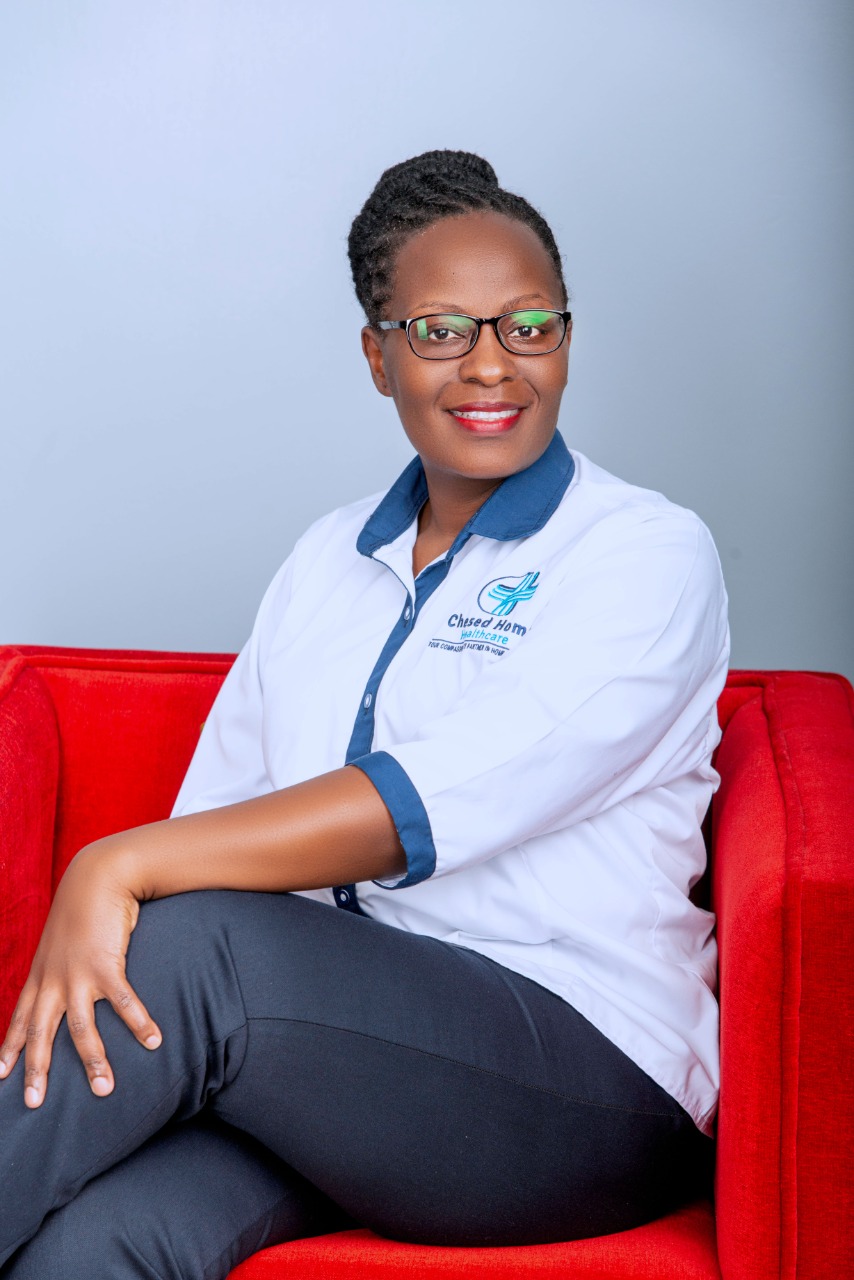
File image of Grace Njiru
I was keen to study nursing, and so upon completion of high school, I enrolled for a Diploma in nursing at the Kenya Medical Training College – Nyeri campus. My career in nursing began at the Nazareth Hospital, where I took up tutorial roles at the Nazareth Medical College for four years.
Then, I transited to the mission institution for humanitarian work with a faith-based organization and later with an International Non- Governmental Organization. Serving the vulnerable populations in South Sudan was a pretty fulfilling and rewarding journey at a personal and professional level.
During this period, one of my greatest joys was leading different actors in the pilot study of the field guide for Newborn Care in the Humanitarian setting; a tool that will be used globally to reduce neonatal morbidity and mortality.
I never saw myself going into private practice at any point in my career. It was not until I took a deliberate rest from formal employment to seek God’s direction into my future. Prayerfully, I looked at gaps in the healthcare system in Kenya. I noticed that chronic care was unexploited. I had also helped to care for relatives and friends who had different illnesses at different times.
This led to the birth of Chesed Home Healthcare, a nursing agency committed to providing quality home-based care for clients from all walks of life.
However, what stirred me was the experience my grandparents went through in their last days. Although our families gave the best they could, I felt the need to do more for persons with long-term illnesses to enjoy optimal health and comfort.

At Chesed Home Healthcare, we offer a wide range of services including;
Basic daily living activities- these are chores that one cannot do independently in the presence of illness e.g bathing, grooming, feeding etc.
Wound care and management.
Palliative and hospice care.
Nutritional support.
Elimination support- Catheter care and colostomy care.
I wish more people understood that home health services have many benefits to all those involved, including the hospitals and families. For example, hospitals would make better use of the extra bed occupancy to care for acute conditions rather than have patients who are at risk of getting infections due to prolonged hospital stays.
On the other hand, families get to go about their business while we care for their loved ones cost-effectively. Patients, too, get a chance to recuperate in a familiar environment.
Both the hospital and the home health agencies have an integral role in healthcare. We can only leverage the strengths of each part. At Chesed, compassion sets us apart. We want to walk the journey; go the extra mile to ensure the family feels they can count on us.
1. Please talk to us about some of the client’s challenges you’ve encountered along the way and how have you managed to solve the same?
We have faced two main challenges: Most of our clients are not aware of the existence of structured home healthcare services in Kenya, and those who know, assume that it is costly. We are therefore seizing any opportunity to create awareness and sensitize the public on different modalities of care.
The other challenge we encounter is family dynamics, whereby some families do not value end-of-life care when caring for the elderly. While the dying deserves respectful and dignified transitions, some feel there is no need of spending resources on them. We try and encourage families to have open discussions about death and care of the dying. In addition to that, saving up for the dependency phase for the elderly can help ease the burden of care.

2. Home healthcare venture is seen as a new concept in Kenya. What does the future look like?
Being a new venture means that, as the baby boomer population ages, there is an increased demand for home healthcare services. People are likely to embrace homes for the elderly where collective care can be provided cost-effectively. We see several agencies coming up in the major towns; this is quite encouraging. It means that there is a need, and we are here to serve and meet the need with lots of compassion.
To realize our mission and vision, we would like to partner with hospitals that are keen to see the continuity of quality care for chronic cases. Most families are just asked to look for a caregiver, yet they don’t know where to start from. Additionally, we would like to partner with people and organizations who would like to help deserving cases with equipment or in-kind since we get the cases and we are not able to address all their issues.
3. What are some of the lessons you’ve learnt that can be helpful to those aspiring to join this kind of venture, especially for those outside major cities like Nairobi?
For the visionary who would like to venture into the sector, I would encourage them to start small with what they have as they progressively grow their businesses. In addition, partnerships with other health players would be variable. However, they need to remain alive to unregulated practice as this is also a common phenomenon that can lead to endangering lives. It is within our moral obligation to protect the practice.
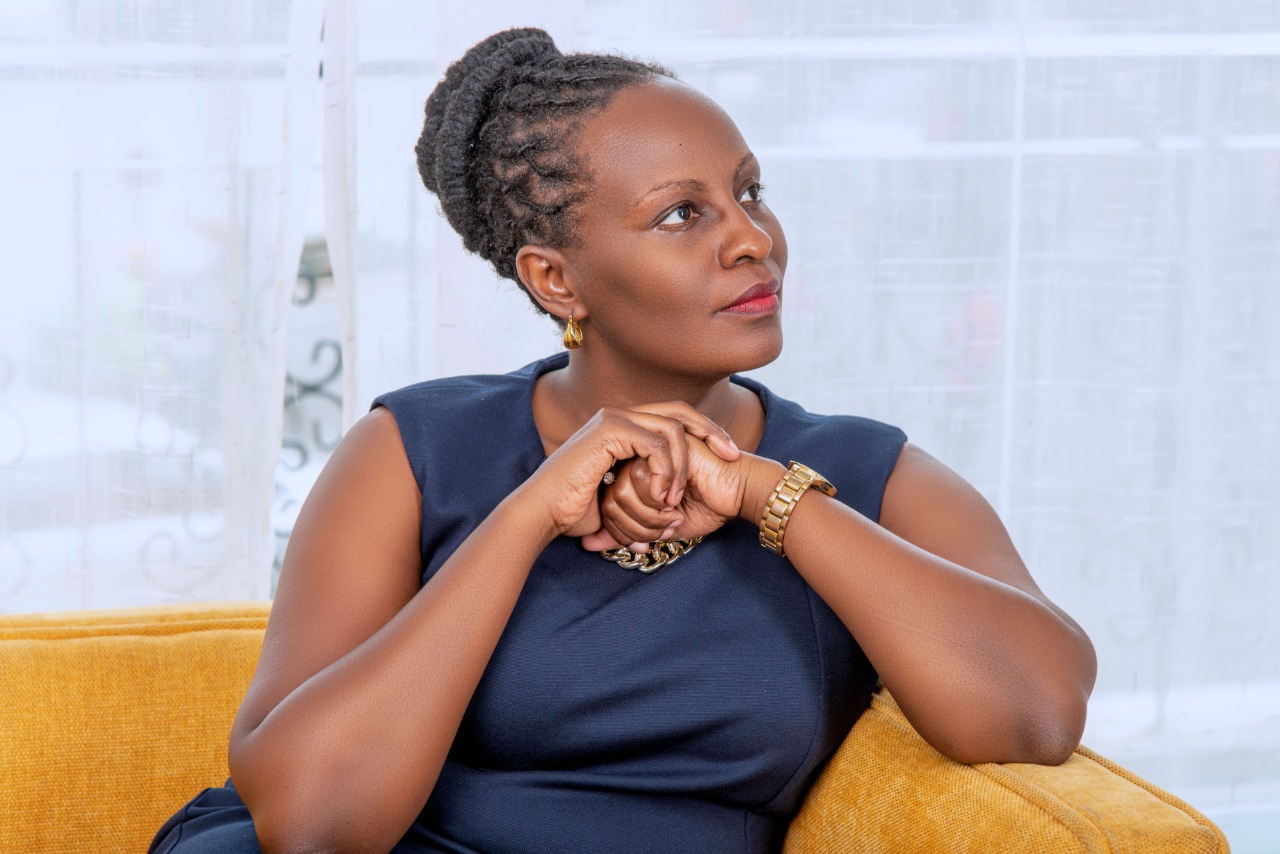
4. Tell us what role has each of the following aspects played in your career life-giving brief real-life experiences?
• Pursuing your passion. “The crowning of a man is to be born to some pursuit which finds him employment and happiness, whether it is through making baskets, or broadswords or canals or statues, or songs,” Ralph Waldo Emerson. So it pays off to align ourselves with what we can do effortlessly, or better still, what we are born to do. I am glad I have followed my passion. By serving others, I have found lots of fulfilment in life.
• Forging networks. Peter Gale once said that our net worth is the value of our network. It takes time and resources to invest in networks, and if done correctly, the benefits can outlive us.
• Taking risks. I describe myself as a moderate risk taker, but the many times I have taken a risk, right there, I have found turning points in my life that would otherwise never have materialized. Here is the question I always ask myself: What is the worst if I take the risk? Often after asking this question, I am ready to take the jump.
• Mentorship. All business or life’s journey requires mentorship. Whether at a personal level or corporate, there is the need to have people who have walked the journey ahead, to guide us.
5. If you were to choose one value that is most important to you that shape the way you work and run Chesed Home Healthcare, what will they be and why?
• Integrity is a value I hold close in all that I do, and this is not any different in my business. I deal with human life, and I cannot compromise the standards of care for anything. It is something I try to instill in my staff and all those that I come into contact with.
• Compassion and Empathy- I have learnt the art of wearing other people’s shoes to understand their pain points. I am passionate about caring for individuals, families, and communities so that they can attain, maintain and recover optimal health and quality care. This is the essence of peaceful living.
Any parting shot?
I strongly affirm that our wealth lies in our health, let us collectively invest in it.
By Patience Nyange and Esther Kiragu

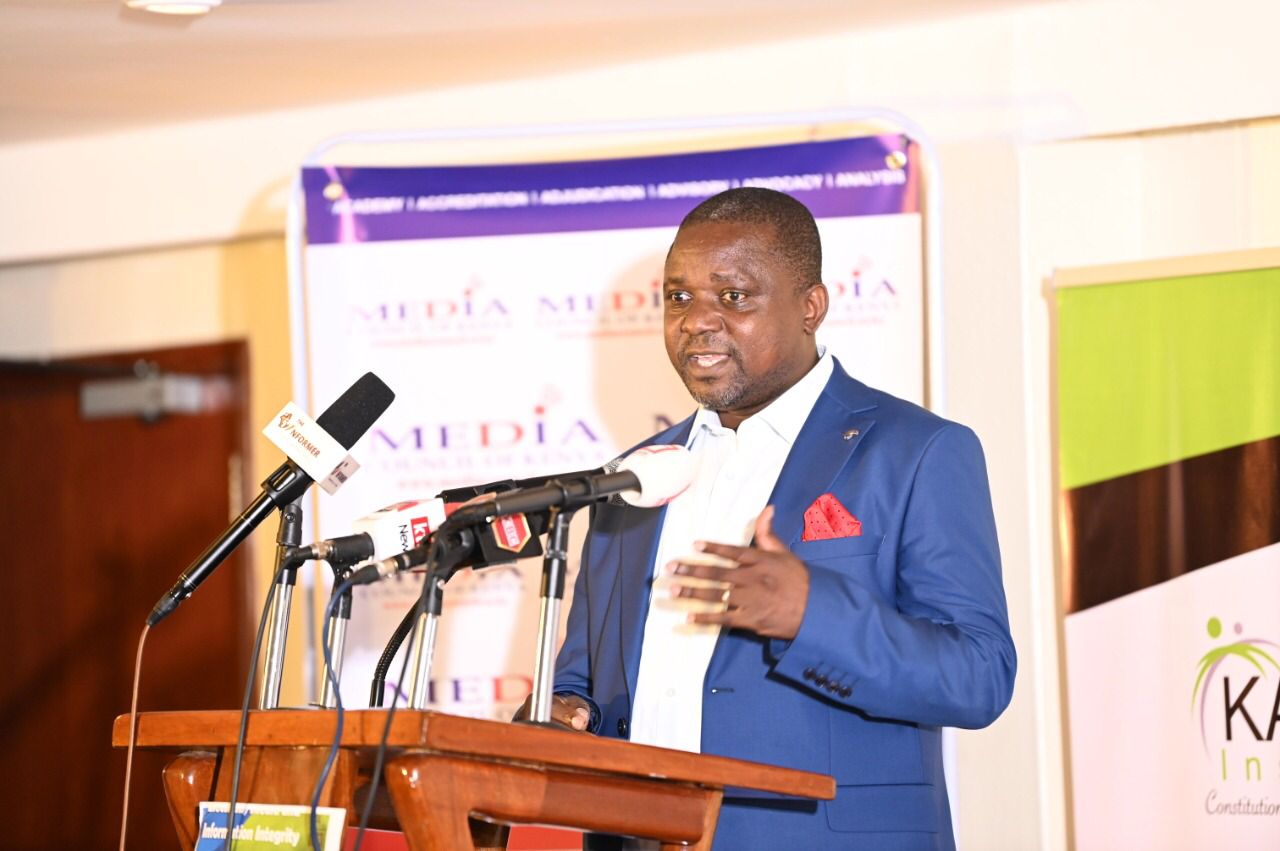

-1726720406.jpg)
